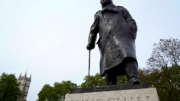At last, after much speculation, it appears that the Government is dropping plans to put an anti-Conversion Therapy bill into the forthcoming King’s Speech. This is brilliant news for free speech for if this bill had gone ahead and been made law it would have criminalised people with gender identity issues being counselled away from radical surgery and drug treatments. It would have enshrined in law the ‘affirmation model’ of treatment for gender dysphoria so beloved of trans activists. Such a law would have meant that a young person struggling with their identity would have not been able to hear any viewpoint from a counsellor, teacher, pastor or rabbi that ran counter to the pseudoscientific view of the the votaries of the cult of trans. It would have pushed vulnerable people onto medical paths that might not be right for them.
The Free Speech Union commenting on the dropping of this pernicious bill said:
There was speculation last week that the UK government’s bill to ban ‘conversion therapy’ has been quietly killed off, given that time had all but run out to publish draft legislation before the King’s Speech in November. When Lib Dem MP Wera Hobhouse asked on September 14th if the bill would be ready in time for the King’s Speech, Leader of the House Penny Mordaunt deftly sidestepped the question.
Now, however, ‘sources’ have told the Sunday Times that the government is expected to formally announce the legislation will no longer be brought forward, five years after Theresa May’s government first vowed to make conversation therapy a criminal offence, with ministers concluding it has proved problematic or ineffective in other countries (most notably Australia and Canada).
That’s a significant victory for free speech – and one that’s thanks in no small part to the thousands of FSU members and supporters that used our digital campaigning tool to email their MPs urging them to scrutinise the Government’s proposals and consider the unintended consequences for freedom of speech if ‘conversion therapy’ is defined too broadly.
One obvious concern is that people of faith, particularly religious leaders, would be vulnerable to prosecution if they tried to dissuade a member of their community from becoming actively gay, or offered to pray for them, or invited other members of their community to pray for them. Provided such attempts at persuasion don’t extend beyond speech and involve an element of coercion, what right does the state have to police what people of faith say to other members of their communities?
But even if you don’t share that concern, there are other risks associated with such a bill. We know that some advocates of the ban want it to cover any attempt to persuade children suffering from gender dysphoria not to have medical procedures that they may later come to regret, such as a double mastectomy. A bill that prevents parents from trying to talk their children out of such procedures is clearly unacceptable from a free speech point of view.
Of course, there are some forms of ‘conversion therapy’ that few people would object to being banned, such as attempts to stop someone from being gay or transgender via exorcism, physical violence or food deprivation. No-one is disputing that ‘treatments’ of this kind have no place in a free society, but a bill isn’t required to ban them. Such practices are already illegal in the UK.
Where things start to get more complicated is at the softer end of the spectrum if ‘conversion therapy’ is defined too broadly – specifically, practices that centre on children and adolescents. In the past few years, a ‘gender affirmative model’ has taken hold in clinical settings like the NHS’s controversial, soon-to-be-closed Tavistock Clinic. Faced with cases of gender distress, this model encourages clinicians to affirm rather than question a child’s chosen gender identity, before then putting them on a medical pathway that can have lifelong, irreversible consequences. We now know that even puberty blockers, intended to delay the onset of puberty so children suffering from gender dysphoria can have more time before deciding whether to have surgery, can cause lifelong harms, such as bone disease and infertility.
The risk, then, is that a poorly drafted bill would effectively criminalise parents, teachers and doctors who deviate from the ‘affirmative’ approach. Even a carefully drafted bill would be in danger of being amended by members of the LGBTQ+ lobby as it went through parliament so it ended up banning ‘conversion therapy’ of that kind. That might seem like an outlandish fear, but in the Australian state of Victoria, where ‘conversion therapy’ has been banned since 2021, a parent who refuses to support their child’s request for puberty blockers is at risk of prosecution.
Trans activists and trans lobby groups like Stonewall pooh-pooh this as scare-mongering, but anyone familiar with the fraught wrangling now taking place over the meaning of the word ‘sex’ in the 2010 Equality Act can attest to the unintended but profound consequences that an undefined word or phrase can have on the right to freedom of expression when it comes to society’s most controversial issues.
Read the rest of the FSU’s statement via the link below:
https://freespeechunion.org/big-free-speech-victory-as-bill-banning-conversion-therapy-is-scrapped/
I’ve no great love for the current government of the UK but I applaud them for dropping a dangerous bill that if enacted would have some appalling unintended consequences.






For a start I have doubts about whether the FSU actually supports free speech as a principle across the board or whether they are a pressure group supporting broadly right wing views against an allegedly censorious and cancelling left.
The FSU has supported gender critical feminists, not the first group of people to come to mind when thinking about ‘the right’. Many of the radfems who disagree with gender ideology and whose speech rights have been championed by the FSU are very firmly on the left of politics. The FSU has spoken up for the rights of evangelical Christians like Hatun Tash and about the targeting of left leaning feminist academics like Kathleen Stock by TRA’s. I see little indication that the FSU has departed from their own non-partisan declaration of status and they are willing to stand up for anyone who has been censored for speech that is clearly not any sort of incitement to violence.
Where you get things incredibly wrong is by saying that the left is ‘allegedly’ censorious and cancelling. This is because it’s pretty clear now that this is what elements of the Left are actually and provably doing.
“an ALLEGEDLY censorious and cancelling left?” Hmm….
That’s what I noticed. It’s no longer a case of ‘allegedly’ it’s a case of actually. There’s ample evidence available now that lefty censorship is no longer a claim but is a reality.